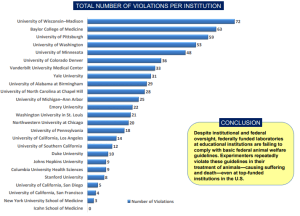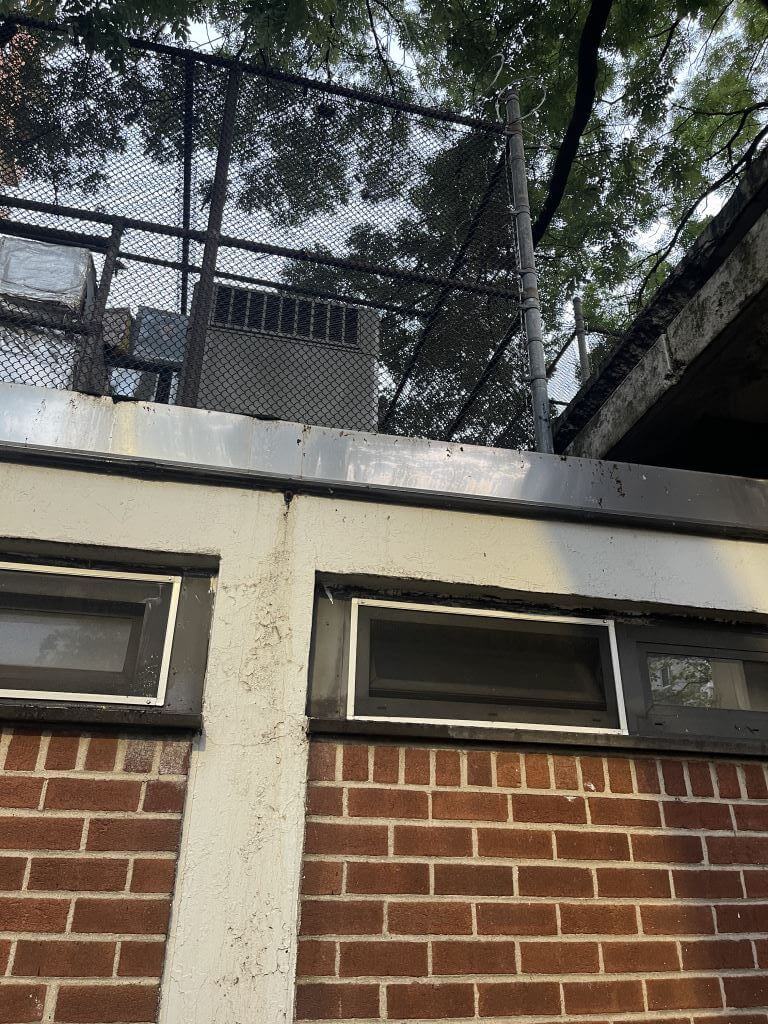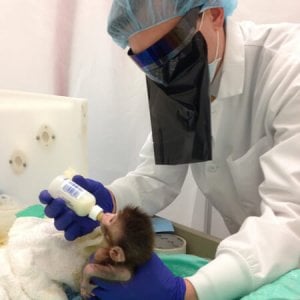PETA scientists presented a new study at an international conference, revealing that the University of Pittsburgh is one of the five worst violators of federal animal welfare guidelines among schools with taxpayer-funded laboratories. The presentation took place at the 12th World Congress on Alternatives and Animal Use in the Life Sciences, in Niagara Falls, Canada.
The study’s authors used federal reports to examine the 25 leading recipients of grants from the National Institutes of Health (NIH)—totaling over $9.5 billion—and documented 632 animal welfare violations in just a 41-month period. The University of Pittsburgh is responsible for 59 of these violations for incidents that include one in which two newborn mice were found alive in a bin intended for dead animals after carbon dioxide gassing failed to kill them. In another incident, a monkey escaped from their cage and sustained injuries that required the partial amputation of four toes on one foot. In more than 30 separate incidents, mice were found to have been left without food or water, causing them agonizing and painful deaths. In just one incident, eight adult mice confined to three cages were found to have no access to food. Seven of the mice were dead upon discovery, and the eighth mouse was in such poor condition that they had to be euthanized. The school received $675,447,236 from NIH in 2022.
Under the Health Research Extension Act of 1985, institutions that receive funding from NIH must comply with federal animal welfare guidelines in their treatment of vertebrate animals.
“The University of Pittsburgh’s failure to comply with the bare minimum of federal animal welfare guidelines illustrates the extent to which animals suffer in its labs,” says PETA Vice President Dr. Alka Chandna. “PETA is calling on the school to modernize with more effective, non-animal research methods and to stop flouting the law while gobbling up hundreds of millions of taxpayer dollars.”
The other top violators are the University of Wisconsin–Madison, Baylor College of Medicine, the University of Washington, and the University of Minnesota for incidents in which animals endured agonizing pain, injury, and death due to neglect, incompetence, and disregard.
At the 12th World Congress—the premier conference for scientists set on reducing and replacing flawed and archaic animal studies—PETA also provided practical roadmaps for ushering in 100% animal-free science and education with information on PETA scientists’ Research Modernization Deal.
PETA—whose motto reads, in part, that “animals are not ours to experiment on”—opposes speciesism, a human-supremacist worldview. For more information on PETA’s investigative newsgathering and reporting, please visit PETA.org, listen to The PETA Podcast, or follow the group on Twitter, Facebook, or Instagram.
The post PETA Study Exposes the University of Pittsburgh as a Top Violator of Federal Animal Welfare Law appeared first on PETA.






